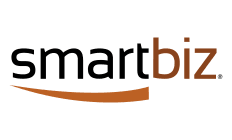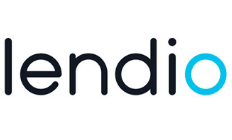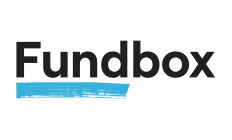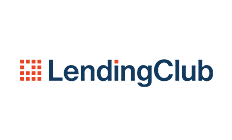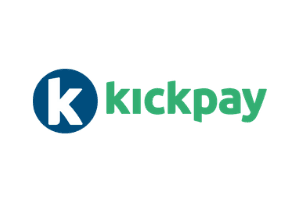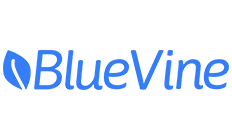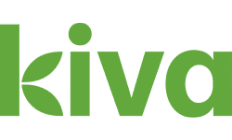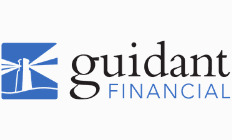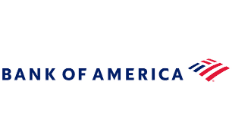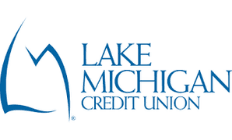A business loan can help get your business off the ground and grow. It can also keep your doors open during a disaster like the coronavirus outbreak.
We reviewed over 200 business lenders before making our selection for the best business loans of February 2021. This includes lenders that offer pandemic assistance through the Small Business Administration (SBA), loans as well as those still offering their regular term loans, lines of credit, merchant cash advances and more.
We paid special attention to lenders that offer loans of $100,000 or less. That’s because more than half of small business loans fall into that range, according to a study by the Federal Reserve.
We then analyzed each business lender based on rates and fees, funding speed, lending limits and the application process. And we keep our list updated, regularly. Recently, we replaced providers like SBG Funding and PNC Bank with options that better meet our criteria.
10 best small business loans
- Best SBA loan: SmartBiz
- Best marketplace: Lendio
- Best invoice financing: Fundbox
- Best peer-to-peer loan: LendingClub
- Best merchant cash advance: Kickpay
- Best line of credit: BlueVine
- Best microloan: Kiva
- Best startup loan: Guidant Financial
- Best bank loan: Bank of America:
- Best credit union loan: Lake Michigan Federal Credit Union
Best SBA loans: SmartBiz business loans
Min. Credit Score
Starting APR
Loan Amount
SmartBiz speeds up the SBA application process by streamlining the information you need to provide. By working with multiple banks and online lenders, it may take just a few weeks to get funding — rather than the normal multi-month waiting period. Prequalification takes a few minutes, and the rates its lenders offer start low. But you’ll need to borrow at least $30,000, and the process isn’t free. Smartbiz will charge a referral and packaging fee if you’re approved for a loan.
Best marketplace: Lendio business loans
Min. Credit Score
Starting APR
Loan Amount
Lendio is a good option when you don’t know where to start. It has a network of over 300 lenders that offer a wide array of business loans, including SBA loans. You can even qualify with bad personal credit. But you may receive marketing calls and emails from lenders long after you’ve taken out a loan.
Best invoice financing: Fundbox business loans
Min. Credit Score
Starting APR
Loan Amount
Fundbox offers a mix of invoice financing and a line of credit to businesses that have a steady stream of revenue. And it considers the financial health of your business instead of your personal credit score when determining approval. Applying online takes just minutes by connecting your bank account and accounting software. You can finance up to 100% of an unpaid invoice — with a minimum monthly rate of 4.66%. But it comes with weekly repayments and steep late fees, meaning it’s not ideal for seasonal businesses.
Best peer-to-peer loan: LendingClub business loans
Min. Credit Score
Starting APR
Loan Amount
As a peer-to-peer lender, LendingClub is able to offer faster financing than a bank without the strict requirements. Your business only needs to be around for a year and bring in $50,000 annually to qualify. And it’s willing to work with business owners with fair credit. However, its high origination fee and maximum APR can make it expensive for businesses that just barely meet these requirements.
Merchant cash advance: Kickpay e-commerce business loans
Min. Credit Score
Starting APR
Loan Amount
Kickpay offers ecommerce businesses advances on what you would normally sell within 16 weeks. It charges a fee of 3% to 7% of your inventory’s manufacturing price, which is of the lowest prices out there for this kind of product. And it sends the funds directly to your manufacturer, speeding up the process. But it has a high minimum advance of $20,000. And you’ll have to work with one of the 100 fulfillment centers it partners with to qualify.
Starting APR
Loan Amount
Bluevine’s low starting APR and lack of fees makes it a good choice for small businesses and startups that need frequent access to funds. Its lines of credit are revolving, so you’ll be able to borrow and repay as needed. But repayments can be weekly — which can strain your budget during seasonal periods.
Best microloan: Kiva business loans
Min. Credit Score
Starting APR
Loan Amount
Kiva’s interest-free microloans are ideal for entrepreneurs looking to turn an idea into reality. It doesn’t have any time-in-business requirements, and you can borrow up to $15,000 without paying any fees. But its loans are crowdfunded, so if you don’t have a large social network willing to make contributions, it could take up to 45 days to raise funds. UPDATE: In light of the COVID-19 pandemic, Kiva has announced it will loosen its eligibility requirements and extend its maximum loan amount by $5,000 – to a total of $15,000. Additionally, borrowers will be granted a six-month grace period before payments are due.
Best startup loans: Guidant Financial business loans
Min. Credit Score
Starting APR
Loan Amount
Guidant Financial is one of the few lenders that offers financing to entrepreneurs. Like most startup loans, eligibility is based on your personal finances and requires good credit. Borrowers who are in the best shape can also qualify for a 0% introductory rate over the first 12 to 18 months. But otherwise, rates are relatively high compared to other business loans — despite the high credit requirements.
Best bank loan: Bank of America business loans
Min. Credit Score
Starting APR
Loan Amount
Bank of America offers a wide range of secured and unsecured loans and lines of credit for most business needs. It even offers business auto loans — which can be hard to find at large banks. It’s available nationwide and has some of the lowest starting rates out there for unsecured financing. But like with most big banks, it can be difficult to qualify. Especially if you aren’t already a banking customer. Smaller businesses might have more luck with their local community bank.
Best credit union loan: Lake Michigan Credit Union business loans
Min. Credit Score
Starting APR
Loan Amount
If you aren’t attached to an online application and have assets to secure your loan, Lake Michigan FCU is one of the top credit unions out there for business financing. Its APR maxes out at an extremely low 7%, and funding is available to businesses across the US. However, the maximum amount your business can borrow is capped at $50,000 — you’ll be able to borrow much more with other lenders.
Summary of best small business loans
SmartBiz | 4.75% | SBA loans | A service that helps you find the best SBA lender for your business and streamlines the application process. |
Lendio | 6% | Comparing multiple offers | A network of over 75 lenders that lets you quickly compare a wide range of offers. |
Fundbox | 4.99% | Invoice financing | A combined line of credit and invoice financing that gives easy access to funding as needed. |
LendingClub | 12.15% | Peer-funded business loans | Low revenue and credit requirements, and a fast turnaround time, set it apart from banks and other peer-to-peer sites. |
Kickpay | N/A | Merchant cash advances | Low factor rates on a typically high-cost product — on top of a willingness to work with bad credit. |
BlueVine | 4.8% | Business lines of credit | A low starting APR, simplified application process and startup-friendly requirements. |
Kiva | 0% | Microloans | A 0% interest rate and no fees with no time in business requirements. |
Guidant Financial | 12% | Startup financing | Accepts true startups with a 0% introductory APR for qualified applicants. |
Bank of America | 4.75% | Bank loans | A wide range of financing options available in all 50 states, with low rates compared to similar banks. |
Lake Michigan Credit Union | 5% | Credit union loans | A low maximum APR compared to similar lenders and availability across the US. |
What loans are available to businesses affected by the coronavirus outbreak?
If you’ve been forced to close due to COVID-19, you’ll want to check out our guides to financing options offered by the SBA and private lenders specifically for businesses impacted by the coronavirus:
- Paycheck Protection Program (PPP)
- Coronavirus business loans
- Business grants during COVID-19
- SBA Economic Injury Disaster Loan Program
Best PPP loan: Kabbage
Online lender Kabbage has paused its regular lending program to focus on loans through the Paycheck Protection Program (PPP). Since March, it’s partnered with over 135 community banks to help small business quickly access this coronavirus assistance program.
Kabbage has been particularly helpful to the smallest businesses, which had trouble getting financed by their bank. Its average loan size was just under $13,000. It financed over 300,000 small businesses during the first round and is accepting application for First Draw and Second Draw loans.
How to get the best small business loan
Increase your chances of approval and get the best rates and terms with these tips.
- Check your credit report. It’s good to know your personal credit score to figure out which lenders your small business qualify for. Beyond that, your credit report might contain mistakes. Get these straightened out before you apply for a loan to qualify for the rates you deserve. If your business is more established, you may have a business credit score that lenders consider as well.
- Over-prepare. Know your business’s finances backward and forward. Get all of your documentation together ahead of time and have it on hand. Remember, you want to appear the most qualified.
- Have a business plan that tells your story. Even if your lender doesn’t require it, a solid business plan means you’re on top of your business’s finances and future projections. Business plans make it easier to understand the types of financing you need, how much and what you might qualify for.
- Go for big lenders for big loans. Big banks are less likely to approve borrowers who need small amounts of financing. It’s best to save banks and other big lenders for larger projects like real estate or buying large amounts of equipment.
- Take advantage of risk-free prequalification. The best way to get an idea of what rates you might qualify for is by prequalifying or calling your lender. It’s not guaranteed that you’ll get those rates, but it’s a smaller ballpark than the advertised APR and term range. And you can more accurately weed out lenders that won’t accept you in the first place.
Top types of loans for small businesses
Look through the following loans to find out which type of financing works best for your small business.
PPP loan
How it works: This COVID-19 assistance program offers loan based on payroll expenses that are eligible for up to 100% forgiveness. And small businesses that saw a drop in revenue can qualify for a second round of funding.
How much you can borrow: Generally, 2.5 times your average monthly payroll expenses — up to $10 million for the First Draw loan and $2 million for a Second Draw loan. Some industries may be eligible for more funding.
Best for: Businesses with fewer than 500 employees with high payroll expenses and low operating costs. PPP loans are not ideal for sole proprietors or self-employed individuals.
SBA loan
How it works: The SBA guarantees business term loans, lines of credit and more for businesses that have had trouble getting funds elsewhere. Interest rates are relatively low, but the application process is more involved.
How much you can borrow: You can generally borrow between $30,000 and $5 million and have as much as 25 years to pay it off.
Best for: Small businesses that have trouble qualifying elsewhere and could use more flexible terms.
Business term loan
How it works: Your business takes out a lump sum to cover a one-time expense. Pay it back in monthly repayments plus interest and fees. Term loans typically don’t come with many restrictions as long as you use them for business purposes.
How much you can borrow: You can generally borrow up to $500,000 and pay it off between one and ten years — sometimes even longer.
Best for: Covering one-time expenses, like buying office supplies or technology or other costs that your business doesn’t need to cover regularly.
Business line of credit
How it works: Similar to a credit card, opening a line of credit gives your business access to cash when it needs money. You only pay interest on what you borrow and have a certain time frame to pay it off. Lines of credit are generally renewable.
How much you can borrow: Your business can typically get access to between $2,000 and $500,000 with repayment periods of six months to a couple years.
Best for: Covering recurring expenses tied to your business’s cash cycle, picking up the slack during an off season or paying for ongoing projects where costs are difficult to predict.
Invoice financing
How it works: A lender gives you an advance on unpaid invoices, which you pay back once the invoices are paid.
How much you can borrow: A percentage of the total value of your invoices. Lenders also typically charge an advance fee of between 2% and 5%.
Best for: Businesses that regularly rely on accounts receivable.
Equipment financing
How it works: A lender gives your business a term loan with relatively low rates to buy equipment, which it puts up as collateral.
How much you can borrow: Up to 100% of the equipment’s value.
Best for: Businesses buying heavy machinery and other expensive equipment.
Microloan
How it works: New and small businesses get a small amount of funding to help get off the ground.
How much you can borrow: Microloans can start as low as $500 and can be repaid over six months or more.
Best for: Small businesses that need financing for basic necessities but can’t qualify for a traditional business loan.
Merchant cash advance
How it works: Business owners get an advance on their future sales — usually credit card — which they pay back with a percentage of their profits plus interest and fees.
How much you can borrow: Typically up to around 25% or 50% of your business’s profits over the past year.
Best for: Retail or other businesses that rely on credit card sales.
How to get approved for a small business loan
Finding a competitive deal on a business loan doesn’t just depend on finding a lender that offers low rates and the right type of financing. No matter where you apply, your business is more likely to qualify for competitive terms if you and your business meet the following criteria.
- Your business is at least one year old. Lenders like to see that your business has a track record of steady revenue coming in to reassure them that you can afford to pay off your loan.
- You have strong personal credit. While business credit scores do sometimes come into play, your personal credit score typically plays a more important role in your loan application.
- You’re personally invested. Some lenders require that owners invest a certain amount of their personal funds in the business. Even if it doesn’t, a personal investment is a vote of confidence that many lenders take into account.
- You’re willing to put up collateral. Many small business lenders require business owners to put a lien on their personal assets up as collateral. Securing your loan takes some of the risk off of the lender and can help you qualify for more competitive rates.
What kind of credit score do you need to get a small business loan?
Most providers prefer to work with business owners that have a credit score of 670 or higher — what most lenders consider to be good credit. Generally, business loans that require a personal guarantee from its owners require everyone with more than a 20% stake in the company to meet the credit score requirement.
But it depends on the provider and the type of loan. Startup financing heavily depends on your credit score because the lender doesn’t have any financials to predict your business’s ability to repay. Merchant cash advances and invoice factoring, on the other hand, are solely based on your business’s future revenue and often don’t consider your credit score at all.
How much of a loan can I get for my small business?
How much of a loan you qualify for depends on factors like your business’s revenue, debts and what you’re financing. Generally, your loan amount is based on the value of a self-liquidating asset that you’re using the funds to purchase. So, for example, if you take out a loan for a piece of equipment, the value of the loan is based on the value of the equipment.
Business financing alternatives
Sometimes a business loan isn’t the best way to fund your business. If you’re new, have low revenue or poor credit, you might not be able to get the most competitive rate. Instead, you might want to consider one of the following options:
- Personal loans. A personal loan is a popular choice for entrepreneurs trying to fund a startup. They typically max out at $100,000 and often require good credit, so they’re not right for all business owners and needs.
- Crowdfunding. You might not need to take on debt or pay anyone back at all if your business needs to fund a project that’s easy to communicate in a short video. Crowdfunding can help you raise the money from your fans or investors.
- Equity investments. Get funding for your business that you never have to pay back in exchange for partial ownership in your company by bringing on an investor.
- Business credit cards. For small expenses or working capital, a business credit card is sometimes a lot easier to manage than a loan. Plus, many business credit cards come with 0% APR promotional periods, giving you a window to make a big purchase and pay it off without interest over a few months or a year.
Let us know about your experience.

